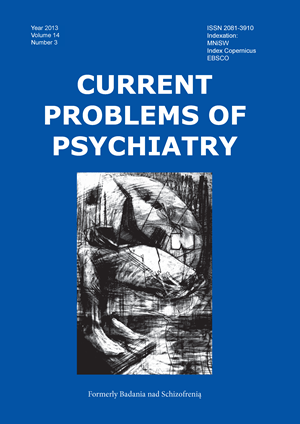Displaying resistance by a group
Keywords:
group processes, resistance, psychological supportAbstract
Anyone working with other people in the field of therapy, psychological support or education, must have come across the phenomenon of resistance - paradoxical phenomenon inherently emerging in the course of therapy or many support activities. There are various psychological approaches that define it in slightly different terms, from inner force counteracting client’s change (psychoanalysis), integrity mechanisms (gestalt), “defence armour”, etc.
In order to understand properly the phenomenon of resistance, authors make reviews of the concept of resistance in resources, nature and signs of group resistance views and handling group resistance. The conclusion is that resistance is a complex and multifaceted phenomenon. Extensive understanding of this phenomenon is a primary task of any individual willing to professionally deal with establishing supportive relations.
References
1. Thoma H., Kachele H. Podręcznik terapii psychoanalitycznej. Warszawa; Pracownia Testów Psychologicznych PTP: 1996.
2. Moore B.E., Fine B.D. Słownik psychoanalizy. Warszawa; Santorski&Co: 1990. J.
3. Kottler . AOpór w psychoterapii. Jak pracować z trudnym klientem?. Gdańsk; GWP: 2003.
4. Porter K. Podstawowe założenia dotyczące technik stosowanych w psychoterapii grupowej. W: Bernard H.S., MacKenzie K.R. red. Podstawy psychoterapii grupowej. Gdańsk; GWP: 2003, s. 107-128.
5. Brehm J.W. Responses to loss of freedom: A theory of psychological reactance. Morristown, NJ; General Learning Press: 1972.
6. Brehm S.S., Brehm J.W. Psychological Reactance: A theory of freedom and control. San Diego, CA; Academic Press: 1981.
7. Crawford M.T., McConnell A.R., Lewis A.C., & Sherman S. J Exp J. Reactance, compliance, and anticipated regret. Soc Psychol, 2002; 38: 56-63.
8. 8.Grzesiuk L. Psychoterapia. Warszawa; PWN: 1994.
9. Hańbowski W. Opór podczas wywiadu wstępnego. Dialog, 2002; 1-2: 12-30.
10. Grzesiuk L. Zjawisko oporu w terapii rodzin. Nowiny Psychologiczne, 1987; 1: 24-39.
11. Egan G. The skilled helper: A problem-management and opportunity-development approach to helping. Pacific Grove, CA; Brooks/Cole: 2003.
12. Kelly A. E., Nauta, M. M. Reactance and thought suppression. Personal Soc Psychol Bull, 1997; 23: 1123-1132.
13. Agazarian Y. The invisible group. An integrational theory of group-as-a-whole. Group Analysis, 1989; 22(4): 23-45.
14. Yalom I.D. The theory and practice of group psychotherapy, Fourth Edition, 1995. New York; Basic Books: 1995.
15. Gita P., Starowicz K. Psychoterapia młodzieży w wieku gimnazjalnym. Psychoterapia, 2002; 3(122): 37-57.
16. Hobby M. Współczesna psychoterapia grupowa. Psychoterapia, 1998; 4(107): 17-25.
17. Tryjarska B. Psychoterapia grupowa. W: Grzesiuk L. ed. Psychoterapia. Warszawa: PWN, 1994. pp. 211-245.
18. Marcus E. Pomaganie bez oporu wg J.Enrighta. W: Santorski J. ed. ABC Pomocy psychologicznej. Warszawa; Wyd. Santorski&Co: 1993, s. 27-57.


